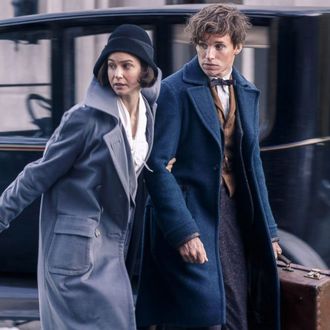
Just in time to get you hyped for Fantastic Beasts and Where to Find Them, J.K. Rowling has added to her history of American magic. Rowling’s latest installment, now on Pottermore, fills out more details on the film’s 1920s setting, and goes in depth on the Magical Congress of the United States of America (or MACUSA, for short). The gist seems to be that even though American witches and wizards have their own government, they’re not so keen on participating in national movements. According to Rowling, the wizarding community congregated in 1777 for a grand debate about whether to join the Revolutionary War, and eventually decided to abstain, telling the Ministry of Magic in London, “Sitting this one out.” After that, the Ministry sent back the classically British response, “Mind you do.” Of course, a few American wizards still joined the fight, because we’re not all giant Tories.
Closer to the present, Rowling emphasizes one key thing that might be important during Fantastic Beasts: In the 1920s, the Department of Magical Law Enforcement was the largest department in the MACUSA, and American wizards still live under Rappaport’s Law, which bans intermarriage and even friendship between wizards and No-Majs. Crucially, a “significant difference between the wizarding governments of the United States and the U.K. of this time was the penalty for serious crime. Whereas British witches and wizards were sent to Azkaban, the worst criminals in America were executed.” Eddie Redmayne, watch your back.


